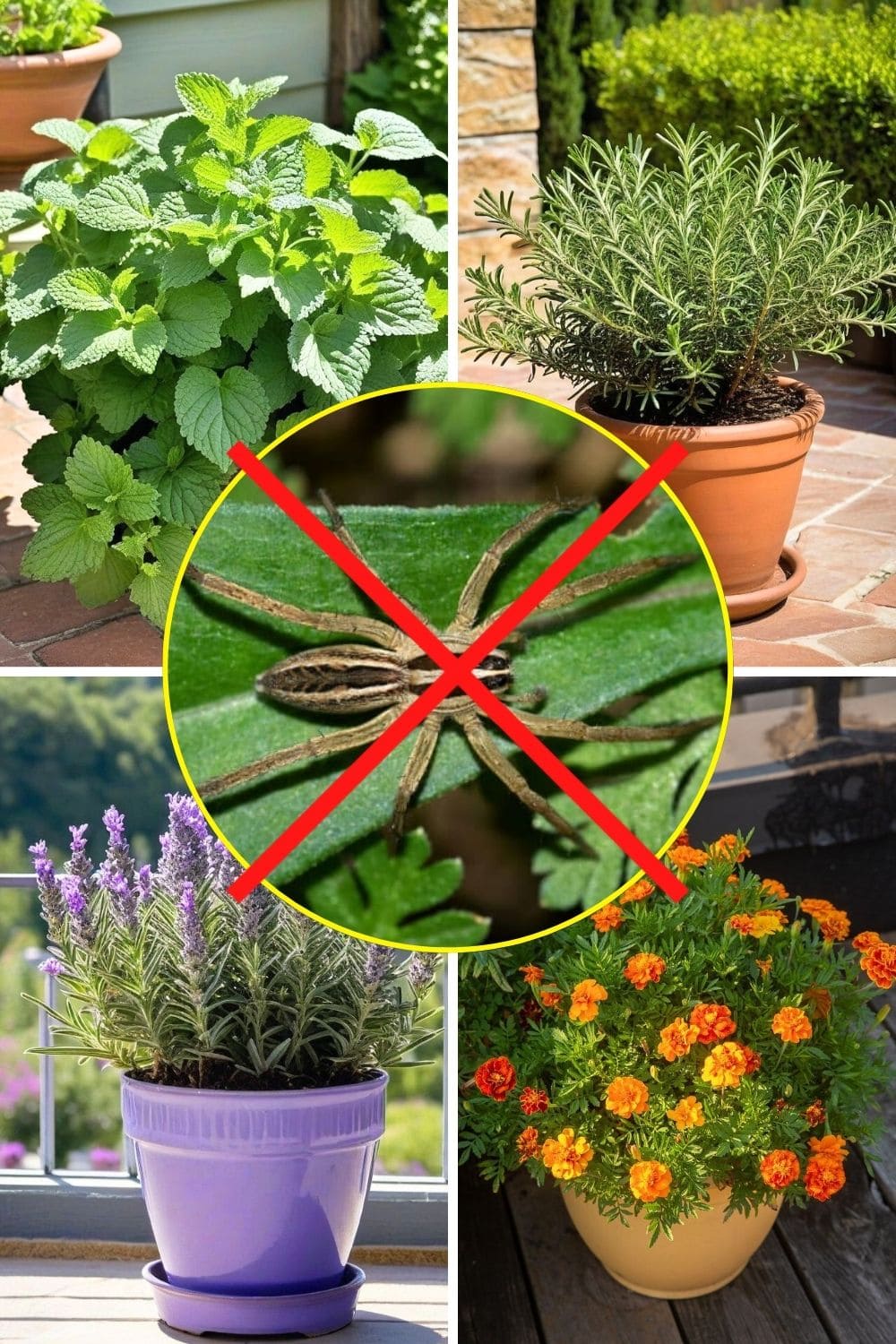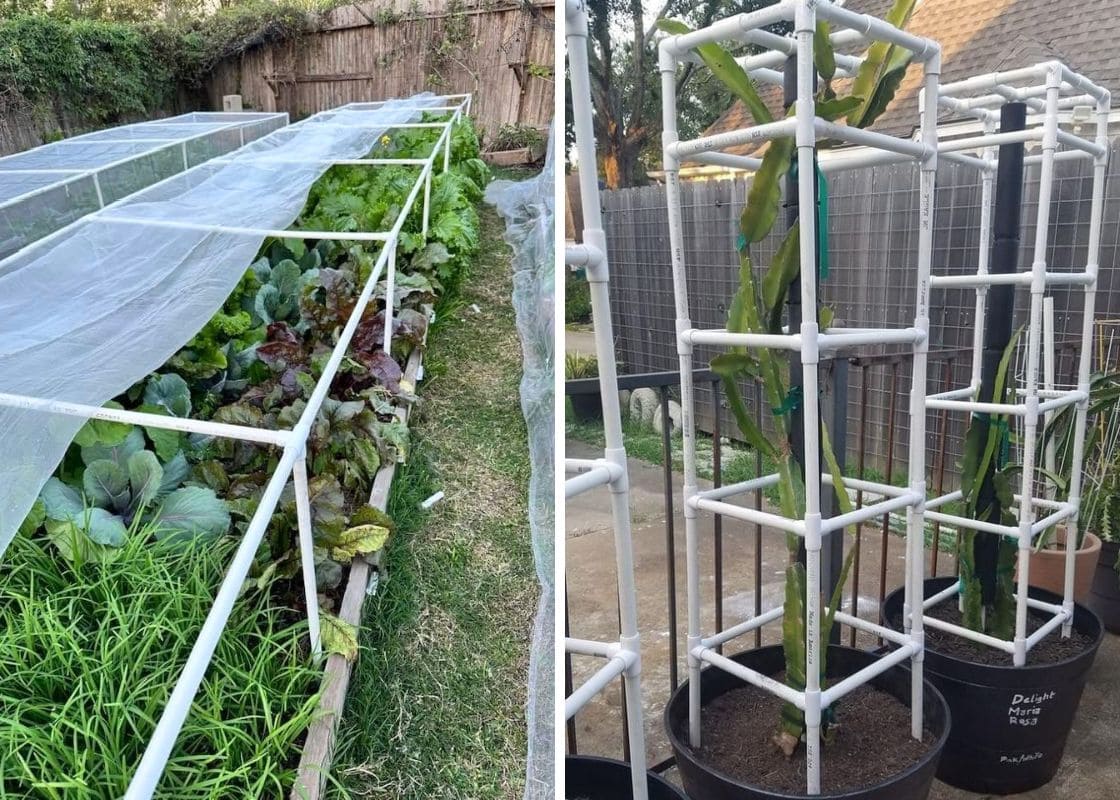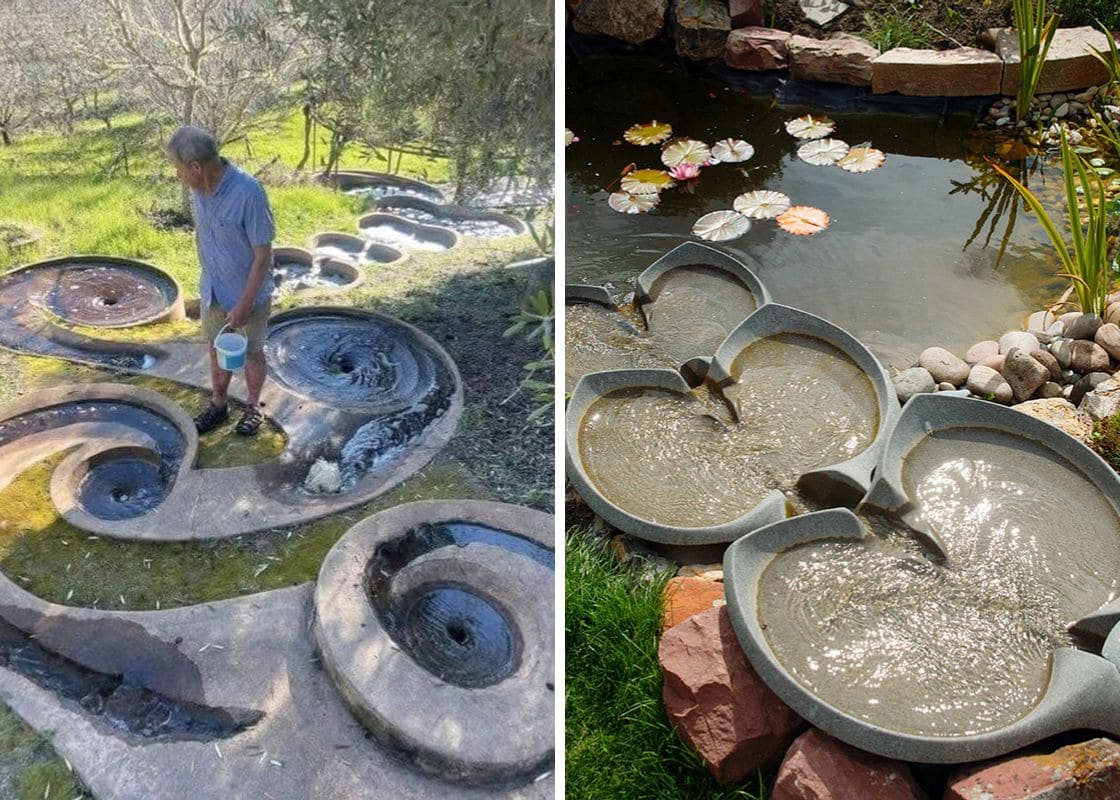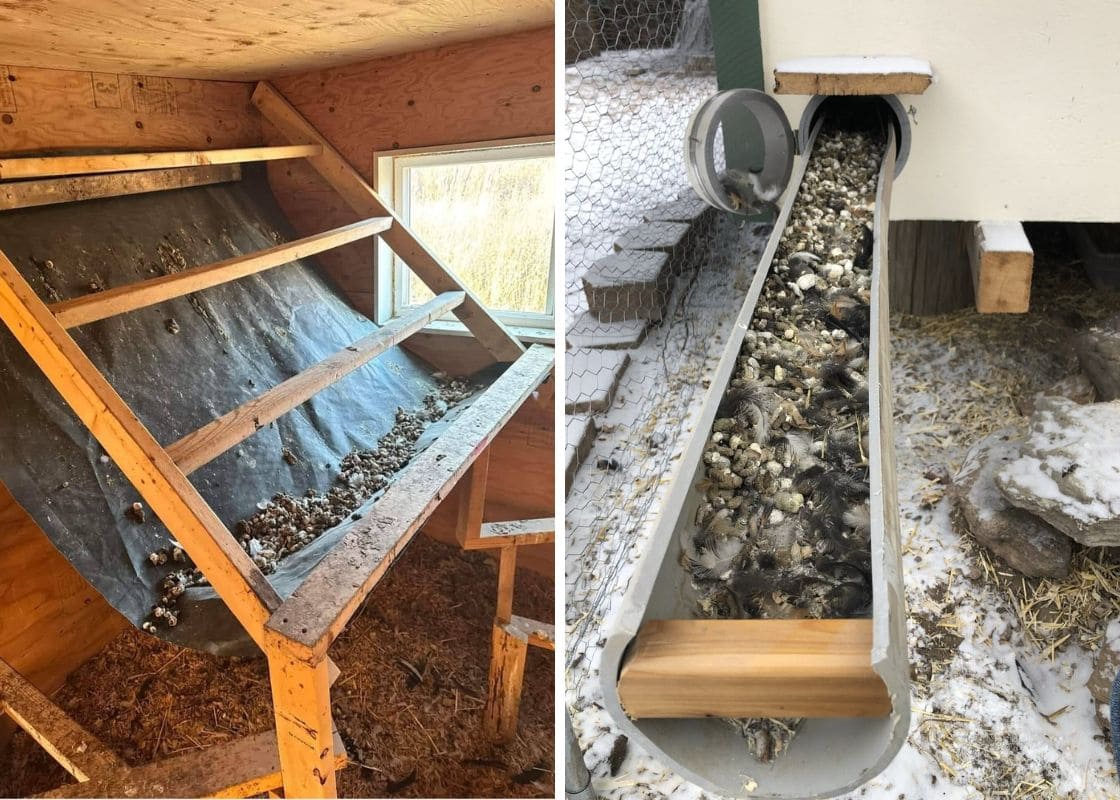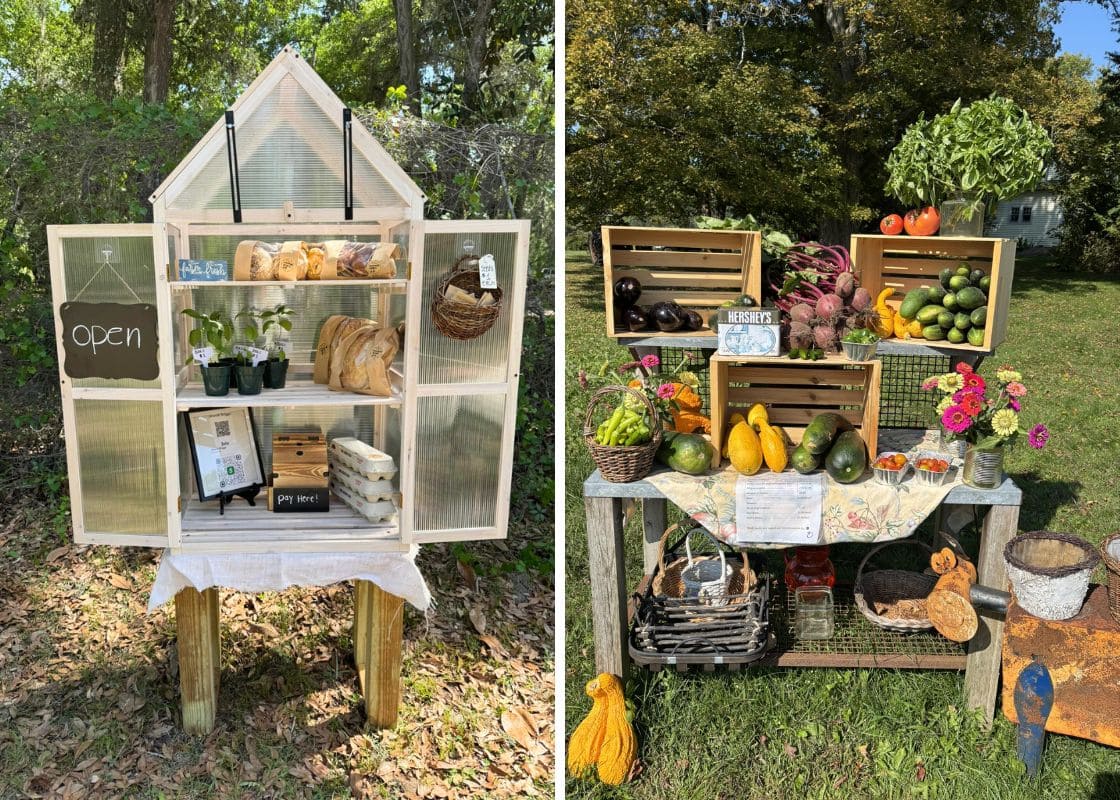If you’re not a fan of finding creepy crawlies hiding in corners, you’re not alone. Spiders might be helpful in some ways, but most of us prefer to keep them out of the house and garden.
However, you can use nature to do just that. Many common plants naturally repel spiders with their strong scents and essential oils.
They not only look great and smell amazing but also serve as your green pest control team.
Here are 15 spider-repelling plants that can help keep your spaces fresh and web-free.
1. Peppermint

Peppermint is one of the most effective natural spider repellents. Its strong menthol scent overwhelms a spider’s sensitive sense of smell, making it an unwelcome environment for them.
You can plant peppermint in pots near doorways and windows, or place leaves indoors. It’s fast-growing, so containers are best to control spreading.
For extra protection, make a peppermint spray with water and a few drops of peppermint essential oil.
2. Lavender
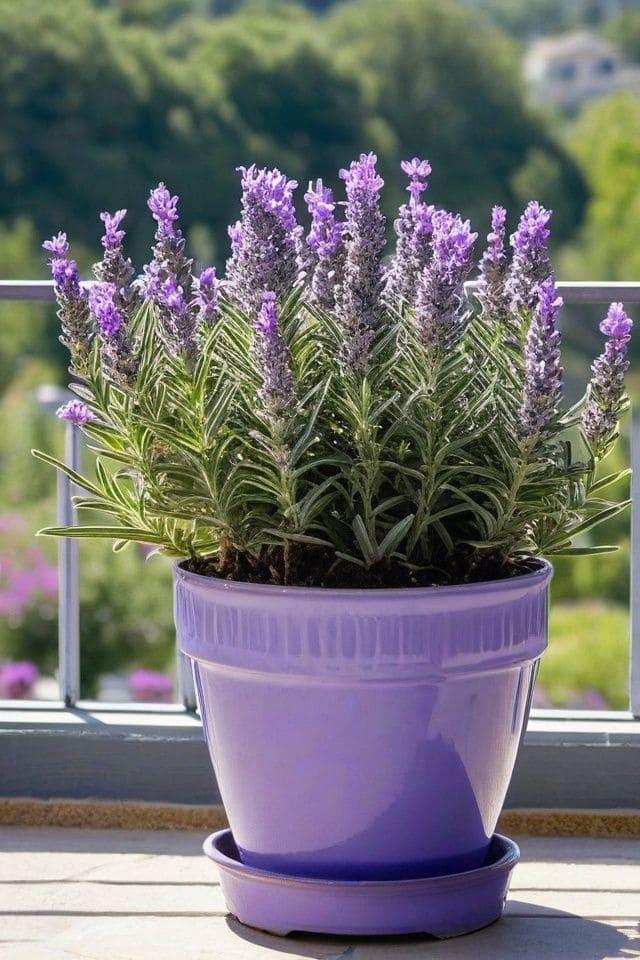
Lavender’s sweet floral fragrance might be calming to us, but spiders strongly dislike it.
Whether planted in your garden, grown in pots, or dried and placed indoors, lavender helps deter spiders naturally. It’s also great for repelling moths, flies, and mosquitoes.
You can hang dried lavender bundles in closets or make sachets for drawers.
3. Lemongrass
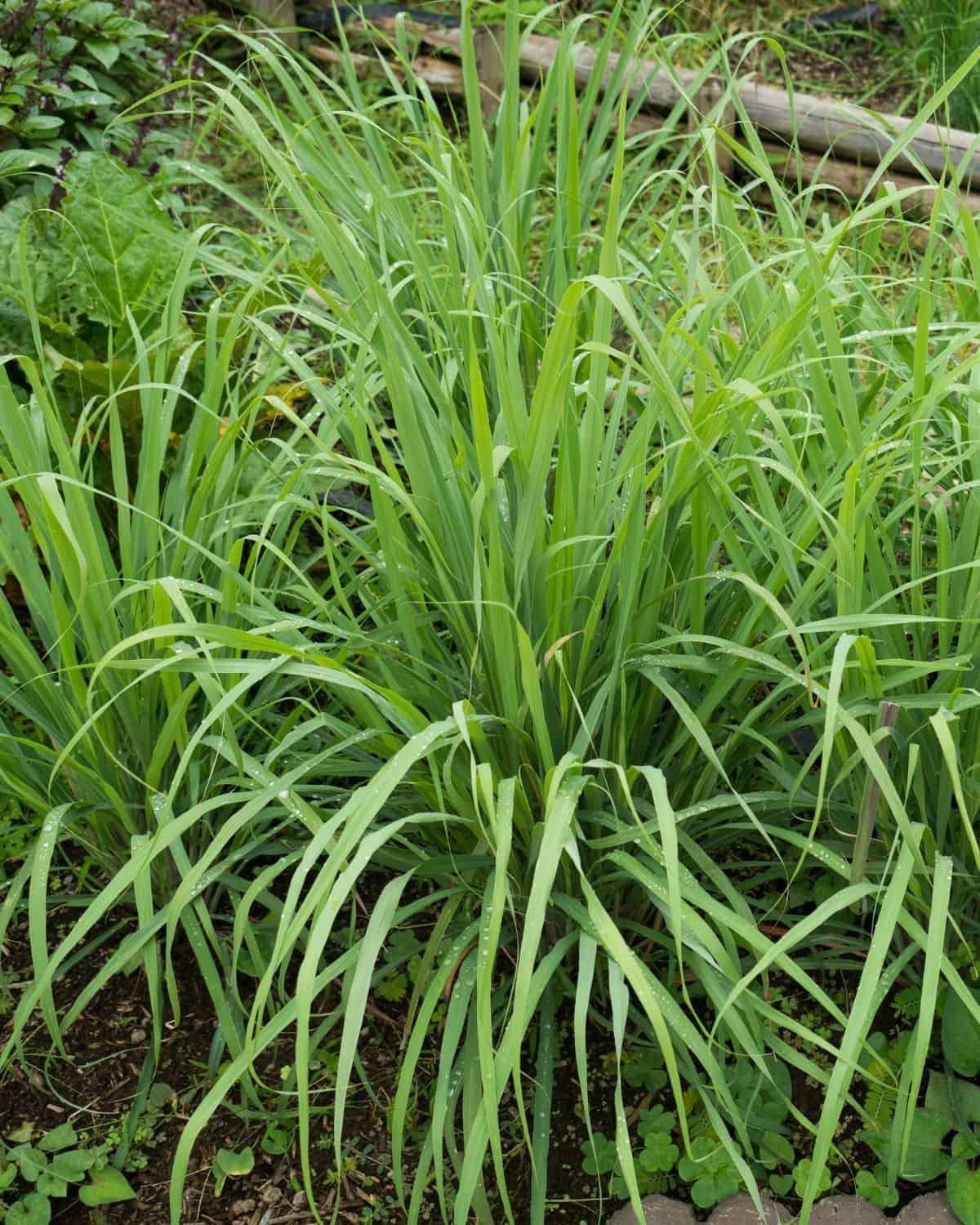
Lemongrass contains citronella, a natural oil that deters a wide variety of insects, including spiders. Its tall, grassy form makes it an attractive and practical addition to your garden or patio.
You place pots near doors and windows to keep spiders out. It needs warmth, sun, and well-drained soil to grow well.
Bonus, it also repels mosquitoes and adds a lovely citrusy aroma to your outdoor space.
4. Eucalyptus
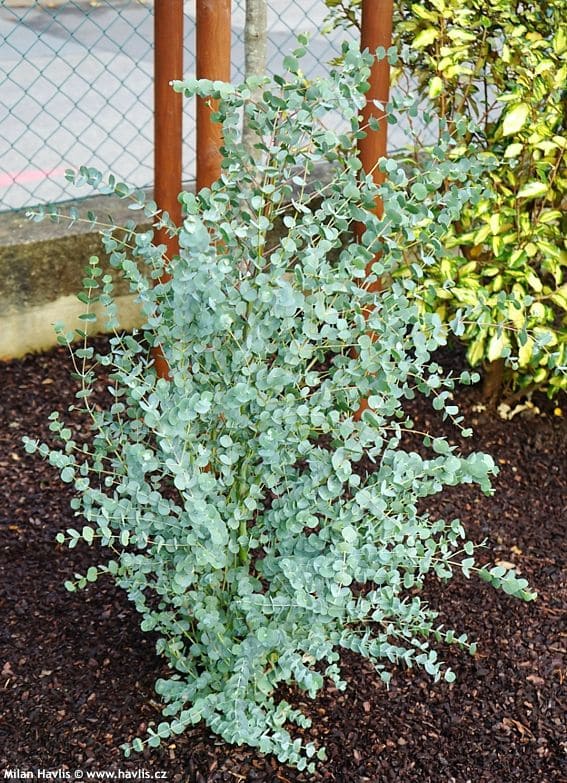
Eucalyptus trees and shrubs give off a strong, clean scent that spiders tend to avoid.
While you may not be able to grow a full eucalyptus tree indoors, smaller varieties or cut branches in vases can help indoors.
Even eucalyptus essential oil can do the trick, dab a bit on cotton balls and place them in spider-prone areas.
5. Basil
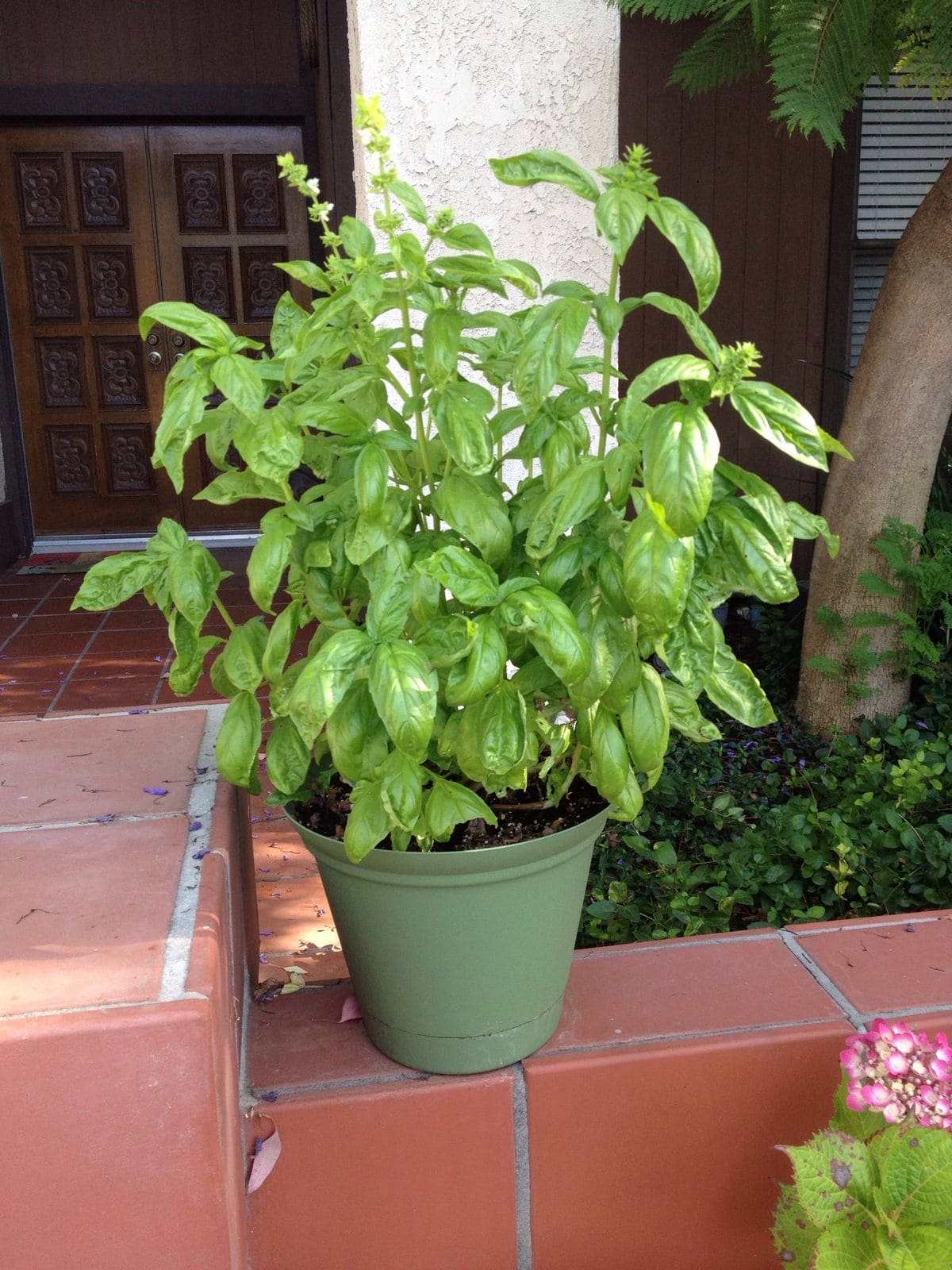
Basil isn’t just for the kitchen, it’s also great for keeping spiders out. The powerful scent of basil leaves discourages insects, especially spiders and flies.
Basil loves warmth and sunlight, so place it near windows or entrances for best results.
Indoors or out, it’s easy to grow and offers dual-purpose benefits, flavor for your meals and protection from creepy crawlies.
6. Rosemary

With its woody stems and fragrant leaves, rosemary serves as a natural spider deterrent while being a hardy, drought-tolerant herb.
Spiders steer clear of its pungent aroma. Rosemary is excellent in garden borders, herb beds, or containers. It prefers full sun and well-drained soil.
You can also dry rosemary sprigs or use the essential oil indoors to repel spiders from corners, windows, and storage areas.
7. Mint (Spearmint, Catmint, etc.)

Like peppermint, other mint varieties such as spearmint and catmint also help repel spiders. The strong scent interferes with spider navigation and keeps them from building webs nearby.
Be careful with planting mint directly in garden beds as it spreads rapidly and can take over.
Containers are a better option. Crushed mint leaves or homemade sprays can also be used around the house for added protection.
8. Lemon Balm
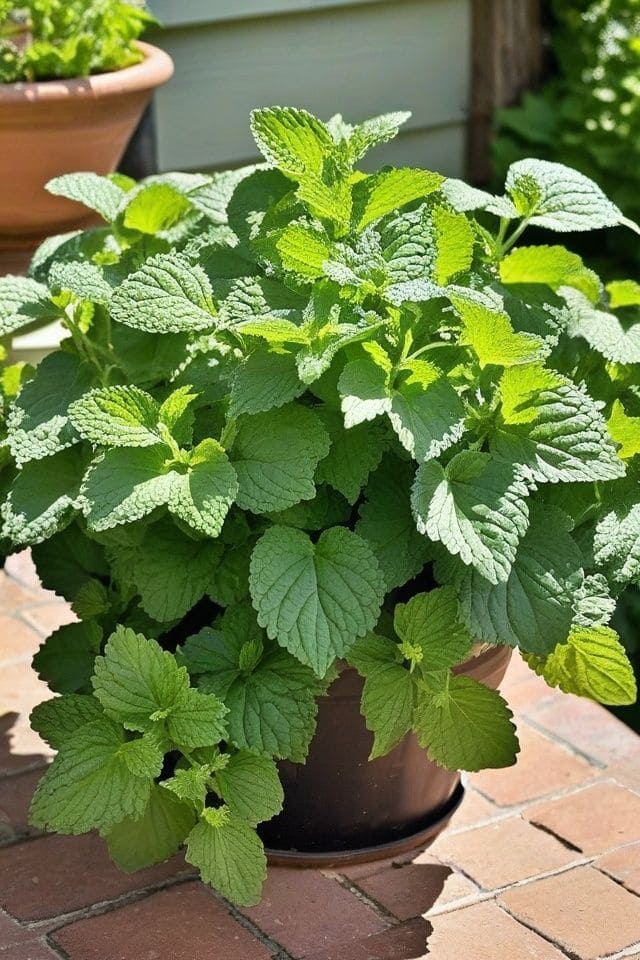
Lemon balm is part of the mint family and has a delightful citrus scent that repels spiders and other pests like mosquitoes.
It’s a low-maintenance herb that grows well in containers or garden borders. It prefers partial to full sun and rich soil.
You can dry the leaves or use fresh clippings to make simple infusions or natural sprays for indoor use.
9. Chrysanthemums

Chrysanthemums contain pyrethrin, a natural insecticide that repels a wide range of pests, including spiders, ticks, roaches, and more.
Their colorful blooms make them a great ornamental option for gardens, especially near entrances.
Chrysanthemums are best grown in sunny spots with well-drained soil. They’re often used in natural pest control products, but planting the real thing can also offer ongoing protection.
10. Onions and Garlic
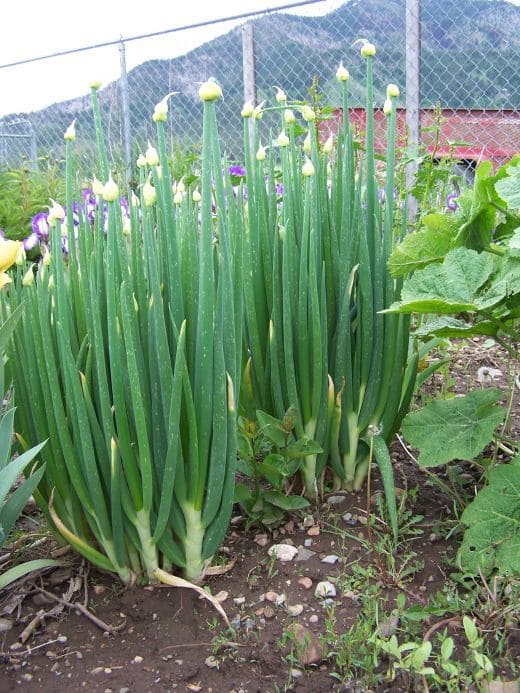
Strong-smelling sulfur compounds in onions and garlic help deter insects and spiders alike.
Planting them around your garden acts as a natural barrier, keeping unwanted pests at bay. You can even crush garlic cloves and mix them with water to create a spider-repellent spray for the home.
While not everyone enjoys the scent indoors, it’s incredibly effective in gardens and storage areas.
11. Bay Laurel
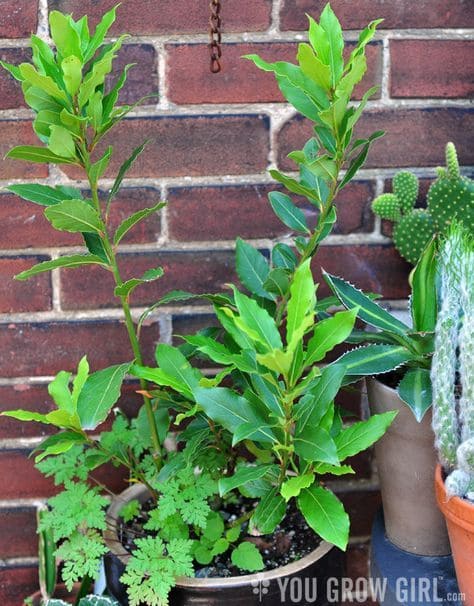
Bay leaves have a pungent, slightly bitter scent that spiders find unappealing.
You can grow a bay laurel plant in a sunny spot, but dried bay leaves also work well indoors.
Tuck a few in drawers, behind shelves, or in corners where spiders might lurk. It’s a traditional, chemical-free way to keep the eight-legged guests at bay.
12. Marigolds
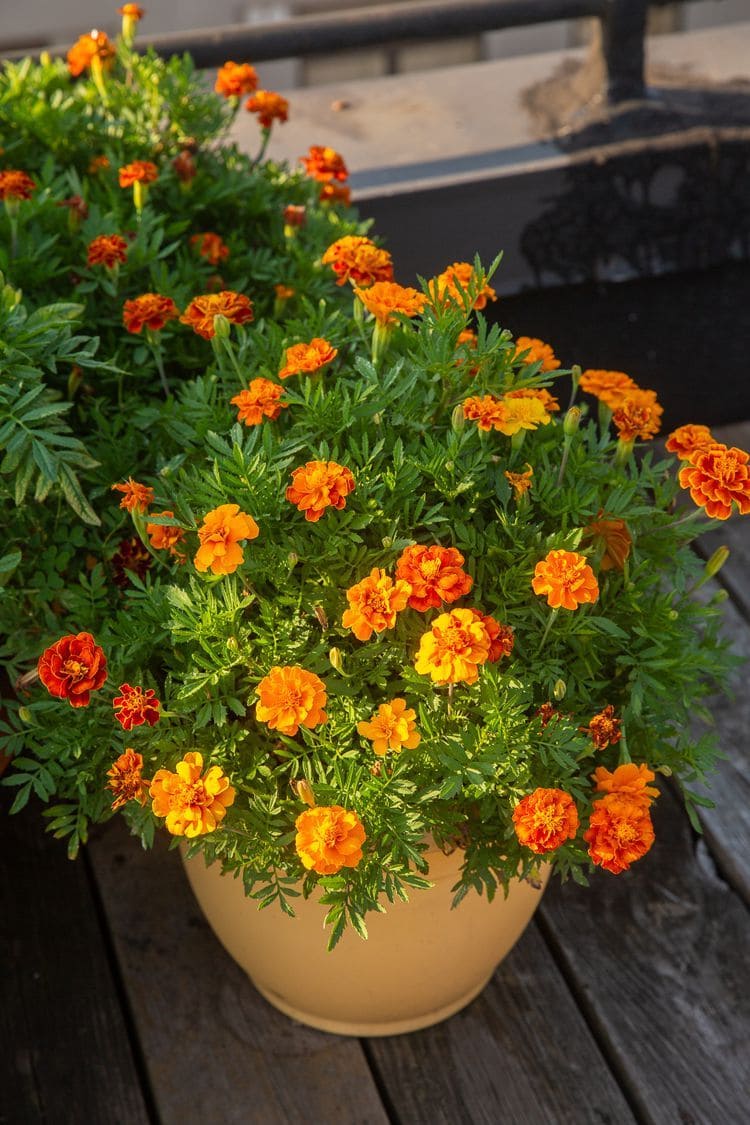
These bright, cheerful flowers aren’t just for decoration, they’re powerful pest fighters.
Marigolds release compounds from their roots and flowers that repel spiders, aphids, and even nematodes.
They’re ideal for garden borders or vegetable plots and thrive in sunny locations. Their bold colors also attract pollinators, making them both functional and beautiful.
13. Citronella Geranium (Mosquito Plant)
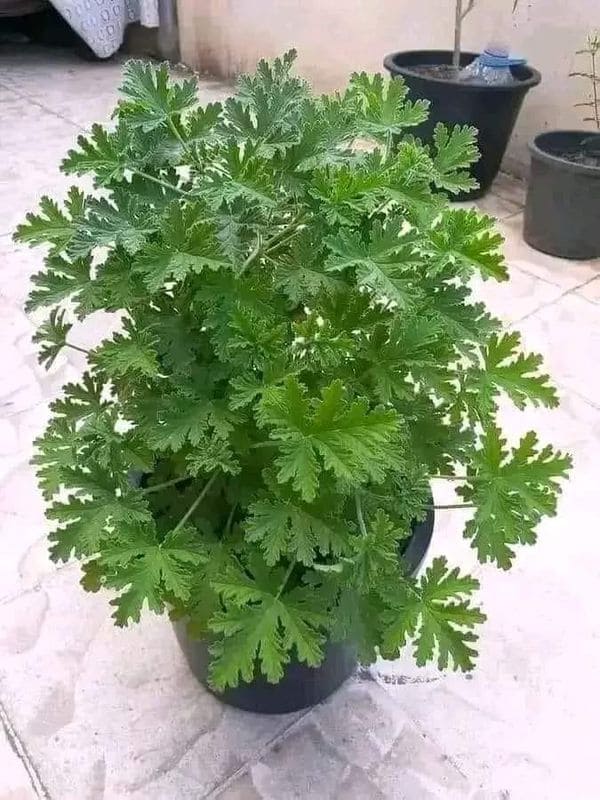
This plant looks like a regular geranium but has a strong citronella scent that drives away mosquitoes and spiders. It grows well in containers and likes full sun.
While it won’t eliminate pests completely on its own, placing it near windows, patios, or doorways adds an extra layer of natural protection, especially in summer.
14. Tansy
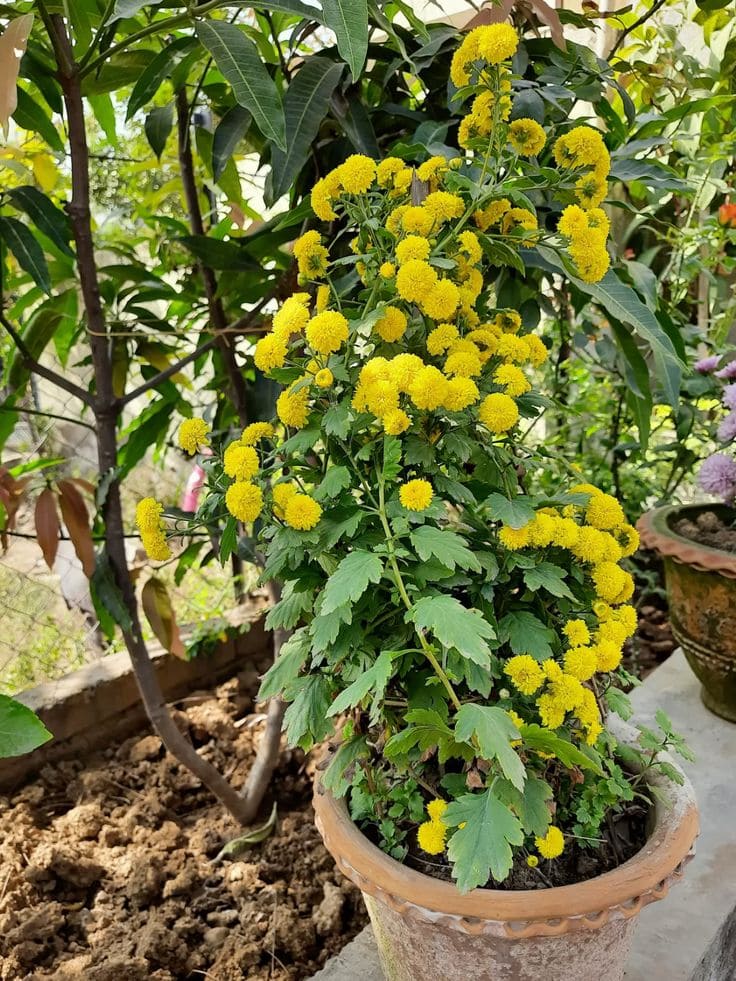
Tansy is a traditional herb known for its bitter smell and natural insecticidal properties. It’s effective against spiders and other pests like ants, fleas, and flies.
However, tansy should be grown with caution as it can be invasive and mildly toxic if consumed.
You can plant it in isolated containers or controlled garden areas to enjoy its benefits safely.
15. Wormwood (Artemisia)
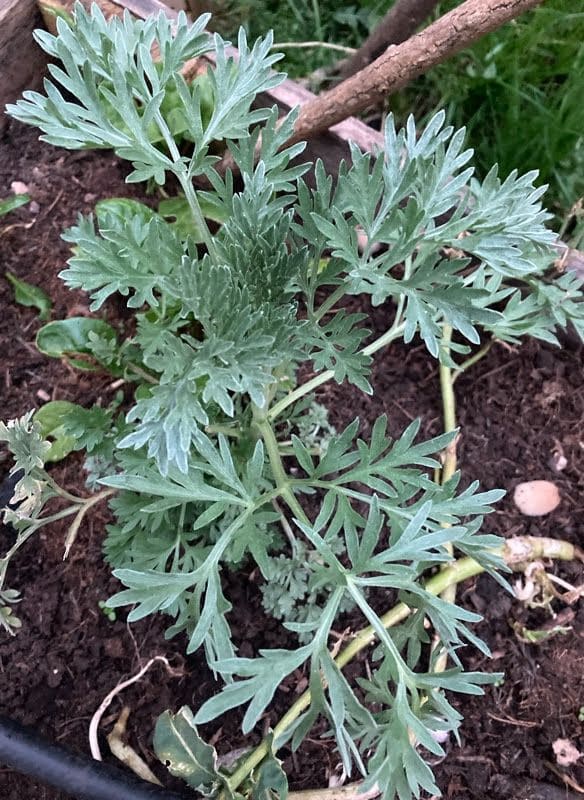
Wormwood has silvery-gray foliage and a strong, bitter aroma that deters many insects, including spiders.
It’s drought-resistant and thrives in poor soils, making it a great low-maintenance addition to pest-prone areas.
While it’s not suitable for edible gardens due to its bitter compounds, it’s an excellent border plant to keep bugs and spiders at bay.
